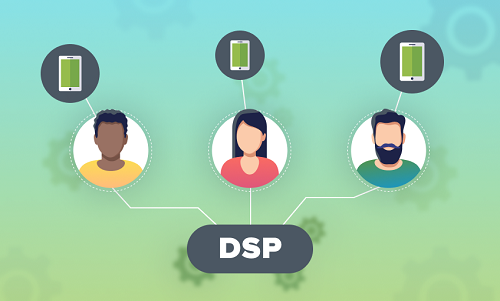The Data-Driven Advantage: Impact of the Demand-Side Platform Industry

The Demand Side Platform industry has become a fundamental pillar of modern marketing, providing a powerful and essential toolkit for businesses across nearly every conceivable vertical. Its core function—to enable data-driven, automated media buying—has transformed how brands connect with their audiences, moving from broad, speculative advertising to precise, measurable engagement. The industry's pervasive and growing influence across the entire economy is a key reason why it is projected to reach a market valuation of $306.61 billion by 2035. This expansion, advancing at a steady CAGR of 13.62% during the 2025-2035 forecast period, is a testament to the industry's success in delivering a more efficient and effective advertising model for businesses of all types and sizes.
In the highly competitive retail and e-commerce industry, DSPs are an indispensable tool. They power the sophisticated retargeting campaigns that show a user an ad for a product they previously viewed but did not purchase, a highly effective tactic for driving conversions. Retailers use DSPs to run promotional campaigns for seasonal sales, targeting users based on past purchase behavior and demographic data. They also leverage "dynamic creative optimization" (DCO), where the DSP automatically assembles a personalized ad for each user, showing them the specific products they are most likely to be interested in. This level of personalization at scale is a game-changer for driving online sales and customer loyalty in the retail sector.
For the automotive industry, which relies on long and complex sales cycles, the DSP industry provides a powerful tool for building brand awareness and influencing consideration. Automakers can use DSPs to run large-scale video campaigns across Connected TV (CTV) and online video platforms, reaching a broad audience to introduce a new car model. They can then use more granular targeting to reach "in-market" consumers—those whose online behavior indicates they are actively researching a car purchase—with more specific, lower-funnel messaging. By tracking user engagement across different channels, they can measure the effectiveness of their campaigns and optimize their media mix to drive potential customers to dealerships or their websites.
In the CPG (Consumer Packaged Goods) and travel industries, DSPs play a critical role in brand building and driving purchase intent. A CPG brand might use a DSP to target households with specific demographic profiles to build awareness for a new snack food. A travel or hospitality company, such as an airline or hotel chain, can use a DSP to target users who have recently searched for flights or hotels in a particular destination. They can even use weather-based targeting to show ads for sunny vacation destinations to users in cold, rainy locations. This ability to target users based on context and intent allows brands in these verticals to deliver highly relevant and timely messages that can directly influence consumer decisions.
Explore Our Latest Trending Reports:
Audio Devices And Component Market
Automated Number Plate Recognition And Detection Sensor Market
- Art
- Causes
- Crafts
- Dance
- Drinks
- Film
- Fitness
- Food
- Spiele
- Gardening
- Health
- Startseite
- Literature
- Music
- Networking
- Andere
- Party
- Religion
- Shopping
- Sports
- Theater
- Wellness
